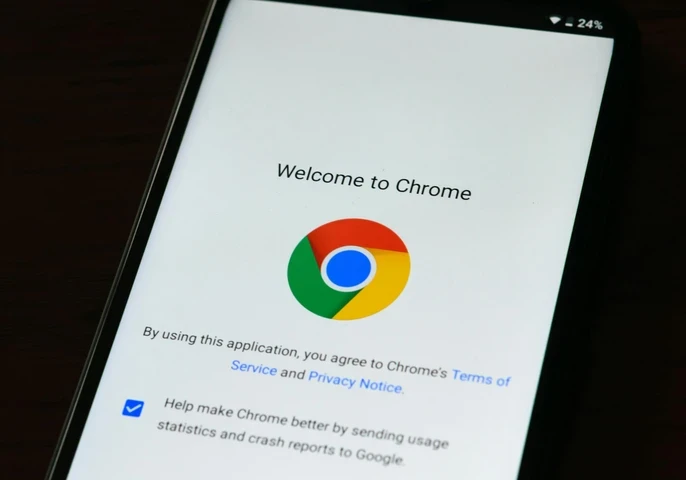Staying secure and maintaining your privacy online can seem almost impossible in the age of big data and sophisticated cyber attacks.
With an estimated 2,220 data breaches taking place every day and a whopping 353 million Americans impacted by data compromises in 2023 alone, your personal and sensitive data is constantly stolen without you even realising it.
At the same time, websites constantly collect your data from every click – whether it be the IP addresses, browser history or demographic information – meaning that your data is never really private no matter how hard you try to protect it.
For organisations and individuals looking to keep their data secure and out of the hands of malicious actors, proxy servers are crucial.

What Is A Proxy Server?
A proxy server is an intermediary server that sits between your device and the internet, acting as a middleman for all your online requests.
This means that when you visit a website, your request doesn't go directly to the website's server. Instead, it goes to the proxy server first.
The proxy server fetches the information you requested from the website and sends it back to you.
Without a proxy, your device requests traffic from the web directly as it would on a standard connection.
Instead of your computer directly contacting websites, it goes through the proxy server first, which fulfils your requests and acts as a gatekeeper.
The main goal of a proxy server is to add a layer of privacy. With a proxy server, websites can only see the proxy's address, making it harder to link your activity directly to you. This can be useful if you're concerned about online tracking or want to browse anonymously for certain purposes.

Some of the leading proxy servers can also filter out malicious content or websites, offering an extra layer of protection against malware and phishing attempts. Organizations can use them to restrict employee access to certain websites or manage internet usage within their network.
Adding a proxy server routes your request and the output of the website or service you're connecting to through an external server first, adding one degree of separation between you and the site or service you want to connect with.
There's also a performance aspect to consider. Proxy servers can cache frequently accessed data, meaning they store a local copy. If you revisit a website that's already been cached, the information can be retrieved from the proxy server much faster than fetching it again from the original source. This can be beneficial for speeding up browsing, especially if you have a slow internet connection.
How Do Proxy Servers Work?
Imagine a proxy server as a translator at a busy conference. You want to communicate with a speaker (the website) on the other side of the room, but you don't speak their language (the website's code).
The translator (the proxy server) acts as a middleman, receiving your message in your language and translating it into the speaker's language (the website's code) before sending it over. The translator then receives the speaker's response and translates it back into your language before delivering it to you. In this sense, Proxy servers work by acting as as an intermediary between your device and the vast internet, controlling and filtering the flow of information.
This process can be separated into four steps – the request, action, response and delivery:

Scaling Multi-Account Access
Why high-volume digital operations now depend on managed browser identities to keep revenue flows stable under stricter platform controls.
1. Request
You, the user, initiate the action by entering a website address (URL) into your browser. This request includes the URL itself and any additional information needed to access the website, such as cookies or login credentials (depending on the website). Instead of sending this request directly to the website's server, your browser is configured to send it to the proxy server's address first.
2. Action by the Proxy
The proxy server receives your request. It acts as an intermediary, understanding the type of request (e.g., accessing a webpage, downloading a file) and the intended destination (website URL). Depending on the proxy's configuration, it might take some actions here, including:
- Translation: If the proxy is configured to handle different protocols, it may translate your request into the format understood by the website's server.
- Security Checks: Some proxy servers can scan the website address for potential security risks before proceeding.
- Content Caching: The proxy might check its cache to see if it already has a copy of the requested website data.
Consent-First Data Architecture
Design an observability-led data backbone that unifies consent, tagging, and identity across regions, networks, and customer touchpoints.

3. Response
Once the proxy has processed your request, it forwards it to the actual website's server. The website server receives the request (potentially from the proxy's IP address) and processes it. The website then sends its response data back to the source of the request – which, in this case, is the proxy server.
4. Delivery to You
The proxy server receives the response data from the website and delivers the website's response data back to your browser so you can see the requested website content on your screen. It does this by translating the website's response data back into a format your browser understands. And If the response contains website content (like webpages or images), the proxy might store a copy in its cache for faster retrieval on future visits.
What Are The Benefits of Proxy Servers?
Proxy servers offer several key benefits for users, ranging from enhanced privacy and security to improved performance in certain situations.
Here are some of the key benefits:

When Data Collection Hits Walls
Why IP blocking, latency and scaling constraints are pushing enterprises toward dedicated residential proxy networks.
1. Enhanced Privacy
One of the main advantages is the ability to browse the web more anonymously. By acting as an intermediary, the proxy server shields your actual IP address from the websites you visit. Websites often track user behaviour based on IP addresses. With a proxy server, your browsing habits become less traceable, making it harder for websites to build a profile on you.
2. Bypassing Geo-Restrictions
Some websites restrict access to content based on the user's location. Proxy servers located in different countries can be helpful for accessing geo-blocked content. If, for instance, a streaming service restricts certain shows to specific regions, a proxy server in a permitted region could potentially allow you to access that content.
3. Improved Security
Certain proxy servers can filter out malicious content or websites, offering an extra layer of protection against malware and phishing attempts. Organizations can leverage them to manage internet usage within their network, restricting access to inappropriate websites for employees.
4. Performance Boost
Proxy servers can improve browsing performance in specific situations. They can cache frequently accessed data locally. When you revisit a website that's already been cached, the information can be retrieved much faster from the proxy server than fetching it again from the original source. This can be a lifesaver for users with slow internet connections.
5. Reduced Load on Websites
By handling some of the initial request traffic, proxy servers can alleviate the burden on high-traffic websites, potentially leading to faster loading times for everyone.
Best Proxy Servers
There are a variety of different proxy servers on the market, each with its own set of features, benefits and limitations when it comes to keeping you secure online.
In this list, we’re counting down ten of the best proxy servers available today, exploring the features and capabilities that make them so popular.




Comments ( 0 )